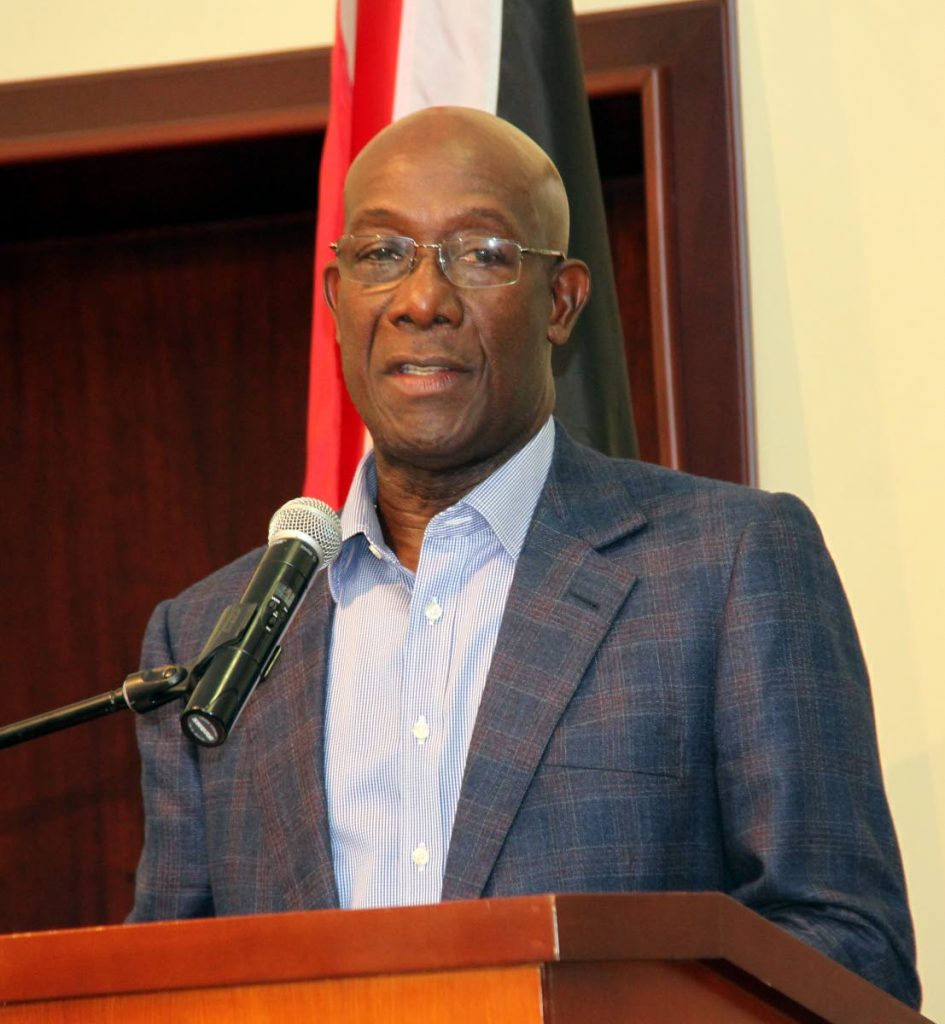Beauticians, barbers on CSME job market

Agricultural workers, security guards, beauticians and barbers will now qualify for Caribbean Single Market Economy (CSME) skills certificates. This was just one of the outcomes of Tuesday’s special meeting among regional leaders to discuss the future of a “domestic economic space” that will facilitate freedom of movement of goods, people, capital and information. “These are four key elements built on the basis of security,” said Andrew Holness, Jamaican Prime Minister and current Caricom head, who chaired the meeting. Artificial barriers and other measures will be “as far as possible” eliminated, he said, to facilitate the ease of doing business and ease of movement for capital and people.
He, and his colleague prime ministers from Barbados and TT hosted a press conference late Tuesday night following the wrap-up of discussions at the Hilton Trinidad, St Ann’s.
Barbados Prime Minister Mia Mottley said the meeting had established a timeline to roll out the regional goals for CSME, with the ultimate aim by 2021 to have “full freedom of movement for all Caribbean people in the community for those who want it.”
The meeting’s host, TT PM Dr Keith Rowley, said it was deliberate that CSME was the single item on the meeting’s agenda.
He emphasised the dire possibility of a collapse of the CSME should it remain on the back burner, as it had been languishing since 2011, until it was revived in 2016. The urgency was more profound after a report compiled by Jamaica’s former PM, Bruce Golding, and laid in the Jamaican parliament earlier this year, suggested that if, over the next five years, Jamaica could see no real benefit from CSME it could pull out and adopt the Bahamas model, remaining a member of Caricom but not part of the single market.
“I felt five years was too much of a threat,” Rowley said about why he volunteered to host the meeting to further these talks.
Caricom and CSME will review how regional institutions will work to allow for greater efficiency. Leaders also signed the Multilateral Air Services Agreement and the Protocol on Contingent Rights that they hope to make operational at a meeting next February. Between now and February, the group will also address agricultural and phytosanitary (plant health) conditions, because the lack of a regional policy constrains farmers from being able to do trade within the region, Mottley said. It’s part of a discussion to get regional institutions and the national authorities in member countries to streamline regulations.
Barbados, for example, has the Caribbean Agricultural Health and Food Safety Agency, based in Suriname, as its national body, she said.
“Unless we can have our labs and our markets certified we can’t export fish to Europe or food products to other places and this is an example of how technical issues becomes very real for ordinary farmers and fishermen,” she said.
Business and labour have also been invited to the Caricom table as associate institutions similar to the Caribbean Development Bank and the University of the West Indies, all of which have the right to sit at the table.
On Monday, the leaders met with businessmen and labour representatives on key productive sectors that needed immediate action, including renewable energy, agriculture and food security, information and communication technology and maritime and air transport.


Comments
"Beauticians, barbers on CSME job market"